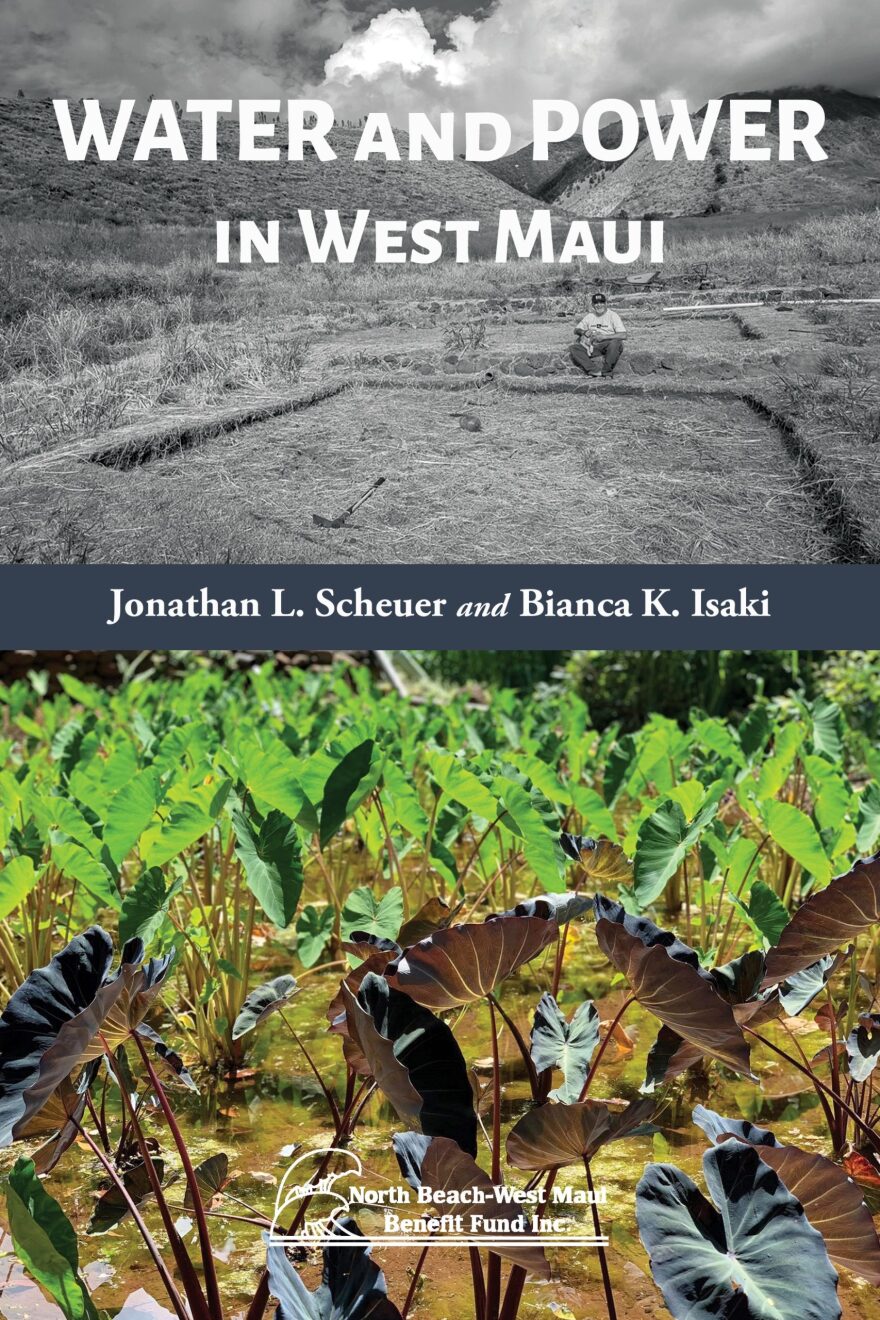The rights to the commercial use of surface water have been a point of contention across the islands since the days of sugar cane plantations. That battle has been fought most notably in West Maui.
Since the demise of the sugar industry in Hawaiʻi, those landowners have continued filing permits to retain the ability to divert water from West Maui streams. In response, several local groups have filed lawsuits to push the state to restore water to the streams and their ecosystems.
A new book called "Water and Power in West Maui" details the history of water rights and where water management may be headed. Authors Jonathan Scheuer and Bianca Isaki shared more about the book with The Conversation.
The book begins with the 1895 legal case Horner v. Kumuliʻiliʻi in which the owners of Pioneer Mill sued Native Hawaiian kalo growers for "having violated traditional and customary water management techniques," Scheuer said.
"It's an incredibly fascinating and often untold story of post-overthrow Native Hawaiian resistance to outside control," he said. "It's a good example of they won the case, but in many ways lost the battle."
"While Horner lost the case, we know from having looked at the development of Pioneer Mill in the (1920s), '30s, all the way up through the '70s, that they eventually did control vast areas of West Maui, and many of those historic holdings ended up in their hands or at least partially."
The results of that case can be tied to water litigation struggles today, Scheuer said.
"There continues to be Native Hawaiians farming taro, reasserting land ownership rights and water rights, some of whom turn to that case, in particular, not just as legal foundation, but also inspiration for their continued existence and thriving," he told Hawaiʻi Public Radio.
Scheuer said the state has done a better job in recent years of effectively managing surface water in West Maui, and other areas of the state, compared to the last three decades. Of its own accord, the state has suggested returning water to streams from historic diversions.
"With that said, everybody always has room for improvement and they're no exception," he said. "We would hope the standards that the state sets for how our resources should look, should move beyond a mindset of looking at the minimum amounts needed, to what kind of restoration of resources we could have so that our ecosystems and our communities are thriving, are abundant."
Isaki said a lot of government approaches to water rights come from a property interest viewpoint, but the people on the ground see it as a protection of tradition and culture.
"What I hope for water rights is that it doesn't have to be a struggle, that it can be something that's managed — and not managed under the framework that the state does currently where it's based on a kind of shady calculus of relying on the past to predict how much is available in the future," Isaki said.
"My hope for West Maui is that the state and the county and those who have greater resources will work with, encourage, and have meaningful discussions and dialogues with communities across Hawaiʻi to build up our collective capacity to manage what could be a truly abundant and beautiful future for water in West Maui, and across Hawaiʻʻi rather than one of the last century of mistrust, struggle and decline of our resources," Scheuer said.
The book was commissioned by North Beach-West Maui Benefit Fund. This interview aired on The Conversation on Aug. 30, 2021.







